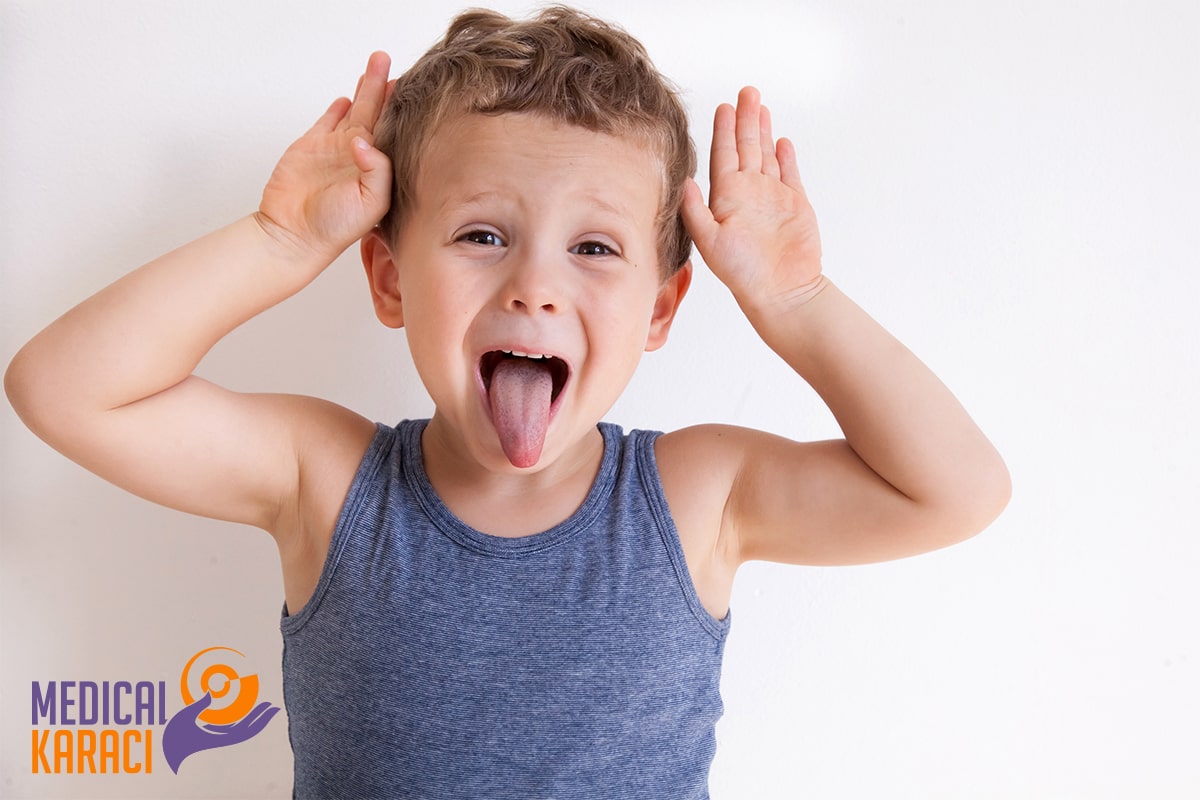Also known as "overgrowth syndrome," Beckwith-Wiedemann is a genetically inherited condition characterized by a growth disorder affecting one side or a specific part of the body.
Newborns and children up to age 8 are larger than normal for their age, and then growth slows to reach average adult height.
The cause of Beckwith-Wiedemann Syndrome varies from individual to individual, but in all cases it is a mutation of genes controlling body growth. These genes are located on chromosome 11, and when the syndrome occurs, there is a disruption in gene regulation in a particular region of the chromosome, or in other words, the growth genes are not turned on and off at the right time in the child's development.
The most common symptoms in the presence of Beckwith-Wiedemann Syndrome are:
- Abdominal organ abnormalities - omphalocele (an opening to the abdominal wall or another organ is found at the site of the umbilical cord, or some organs are outside the abdominal wall), umbilical hernia
- Pink or red spots on the face ("angel's kiss")
- enlarged liver
- Hypoglycemia in infancy
- A very common symptom is macroglossia (abnormally large tongue at birth)
- large abdominal organs
- kidney abnormalities
- abnormally large folds and dimples on the skin and around the ears
- increased risk of developing tumors (Wilms tumor, hepatoblastomas)
Some people only have one symptom, while others exhibit more symptoms. Some premature babies with Beckwith-Wiedemann syndrome have mild mental changes, but this is more likely due to the earlier birth.
Diagnosis:
Tests for the diagnosis of Beckwith-Wiedemann are not yet template categorized. Intrauterine syndrome can be spotted on routine ultrasonographic examination. Excessively large fetus, enlarged placenta, large size of some organs of the baby are visualized. When the presence of the syndrome is suspected, additional prenatal tests can be performed on the recommendation of medical specialists.
Sometimes suspicions of Beckwith-Wiedemann syndrome arise after the child is born. Often, newborn children have features characterizing the syndrome, allowing the diagnosis to be made. Abdominal wall abnormalities, macroglossia, large stature and weight are most common.
Usually, specialists recommend genetic testing to make the diagnosis definite. In addition, genetic testing can determine whether the syndrome is passed on through family members and exactly how. This would be important information in cases where parents wish to have more children.
Treatment:
There is no cure for the syndrome, but there are possible and good ways to treat individual symptoms.
With regard to hypoglycemia, medications are used to maintain normal blood sugar levels in the child. Surgical methods are often used to remove an omphalocele or other birth defect of the abdominal wall and organs.
One of the finest tasks of specialists is to reduce the size of the tongue in people with macroglossia. Because the tongue is too large for the child's oral cavity, it can cause frequent choking and shortness of breath. Also, problems with swallowing are exacerbated, and when speaking, macroglossia can lead to a disturbance in the quality of impulse transmission between the central nervous system and the act of speaking as the kinesiology of the speech musculature is altered.
It is of utmost importance that the tongue reduction surgery is performed by an experienced professional, as there are multiple receptors located in the tongue. Failure of the surgery would result in a 'crippling' of the gustatory and tactile qualities of the tongue, which would also compromise the individual's lifestyle in the future.
Usually, children are not mentally affected and do not differ from their peers. The risk of developing tumours also decreases with age and, as already mentioned, height is regulated as children grow.
The prognosis for a person born with this syndrome is good, especially in cases where the corrections are done on time and under the supervision of the right team!
For more information, we at Medical Karaj are at your service.
Call us on the following numbers "Medical Karaj": 0879 977 401 or 0879 977 402.
Also keep an eye on our constantly updated Facebook content.








